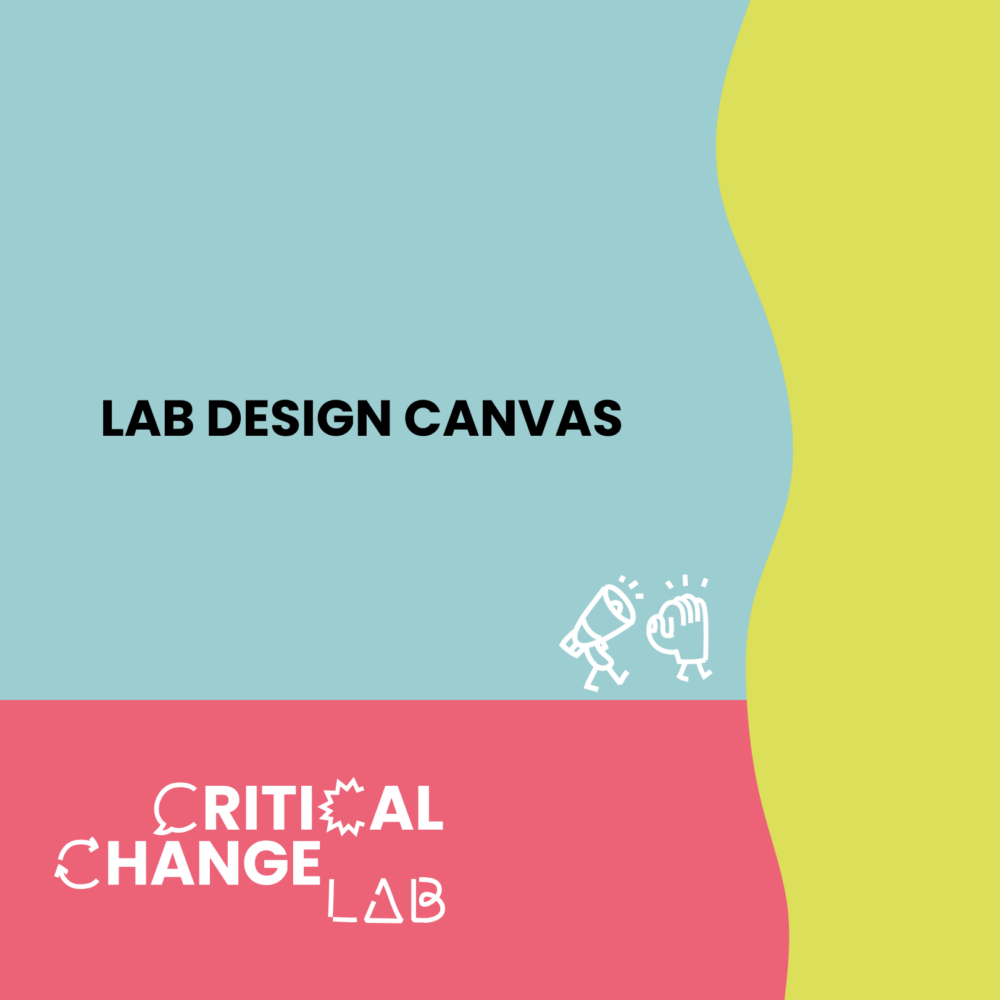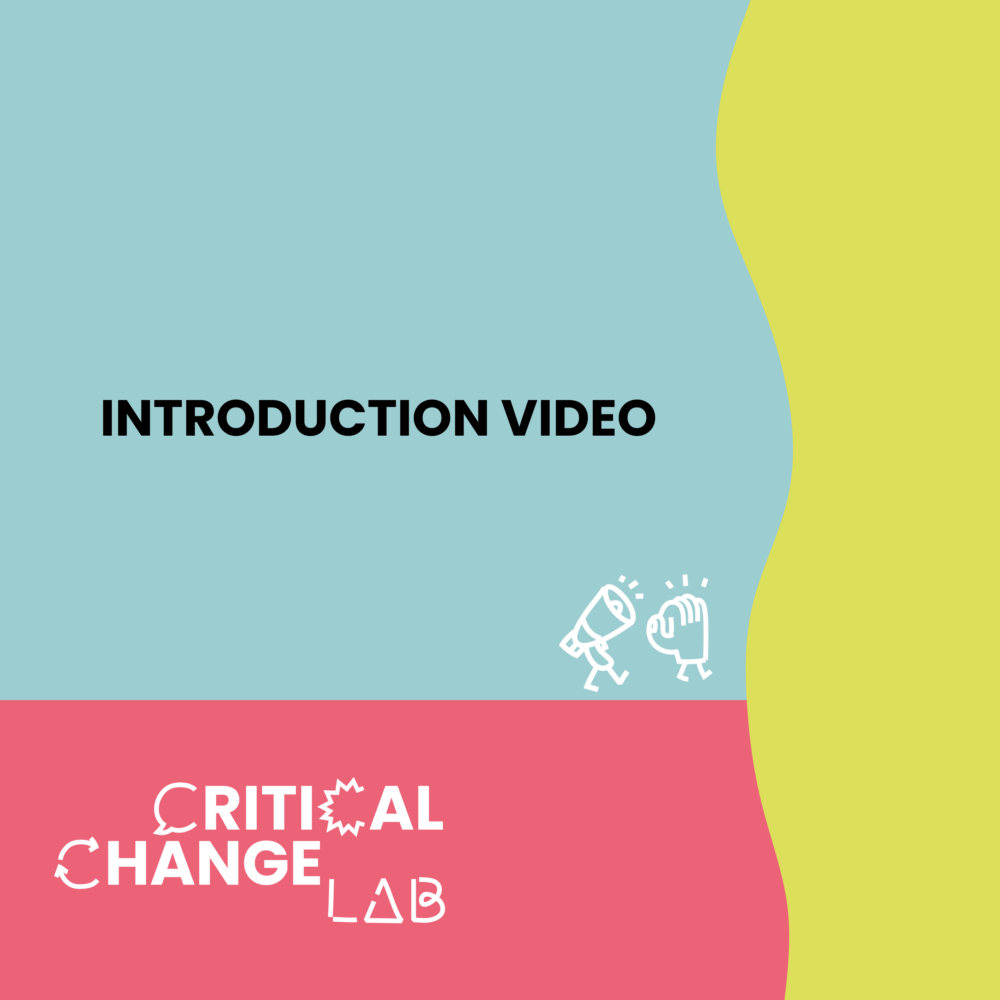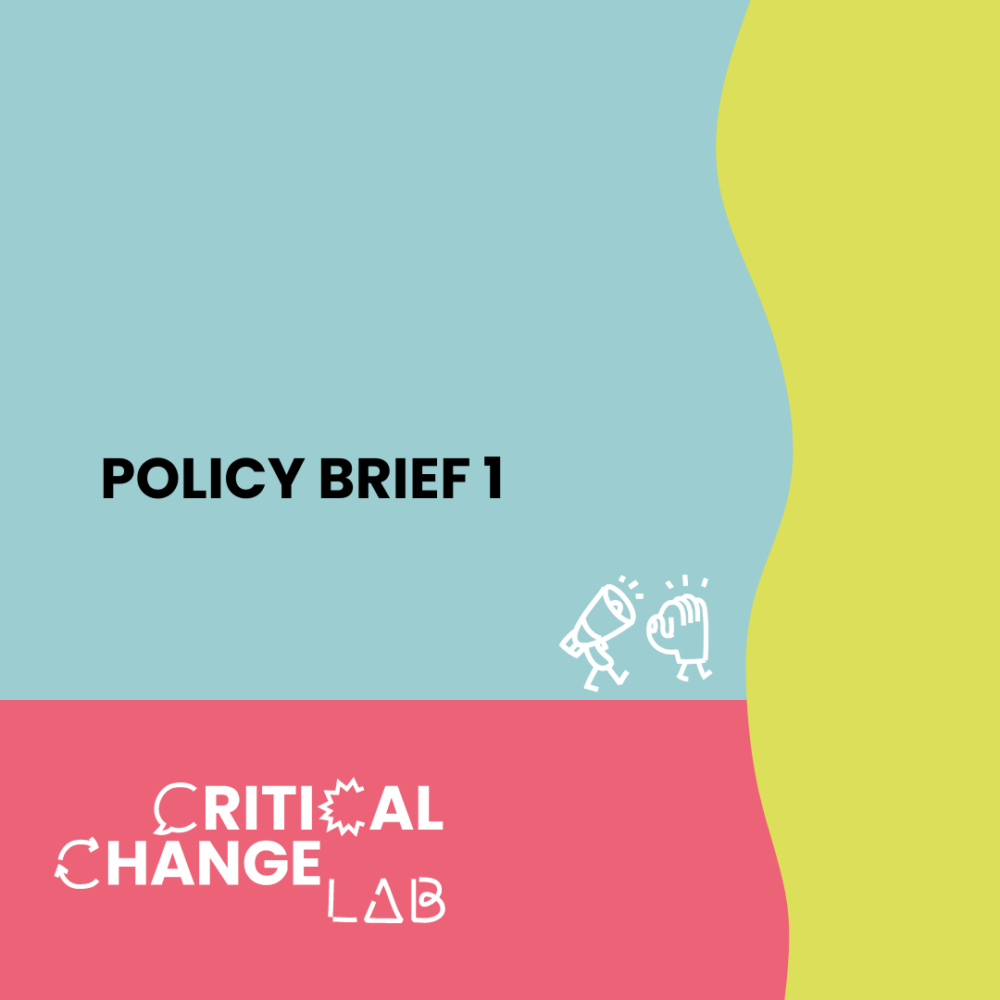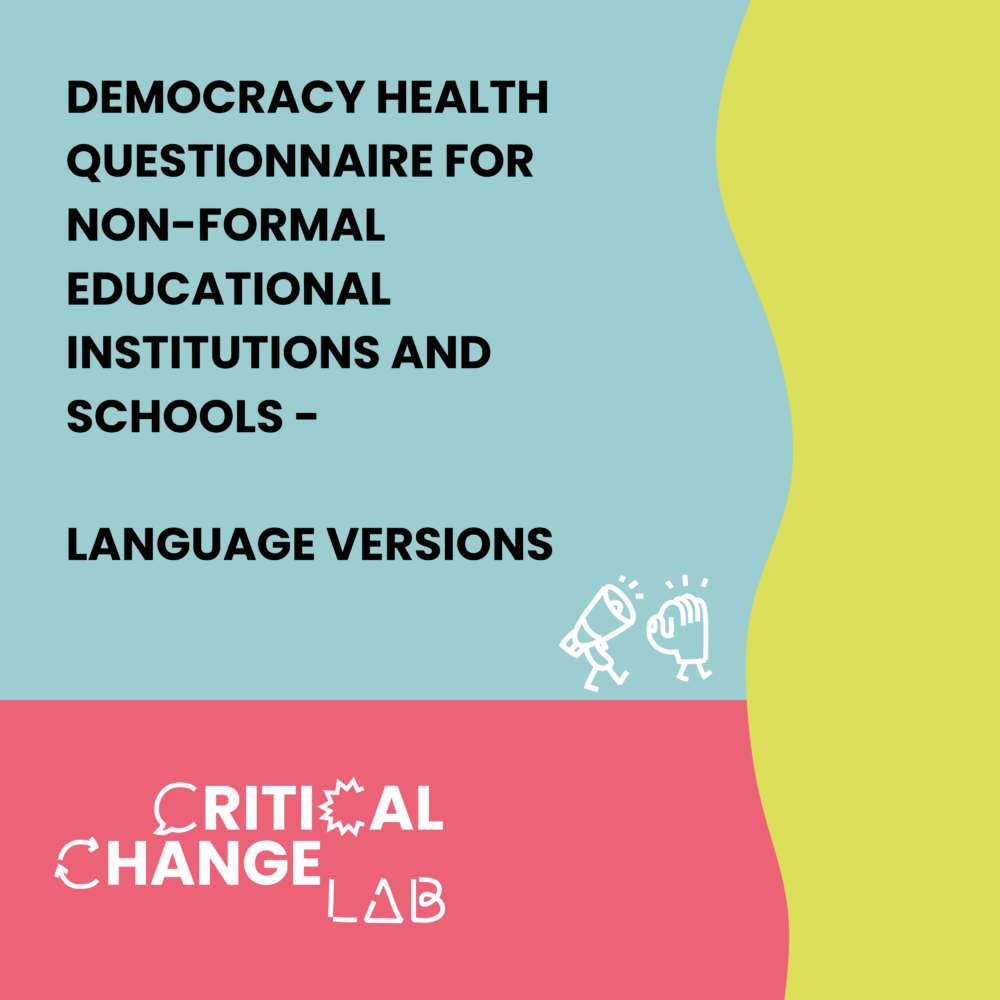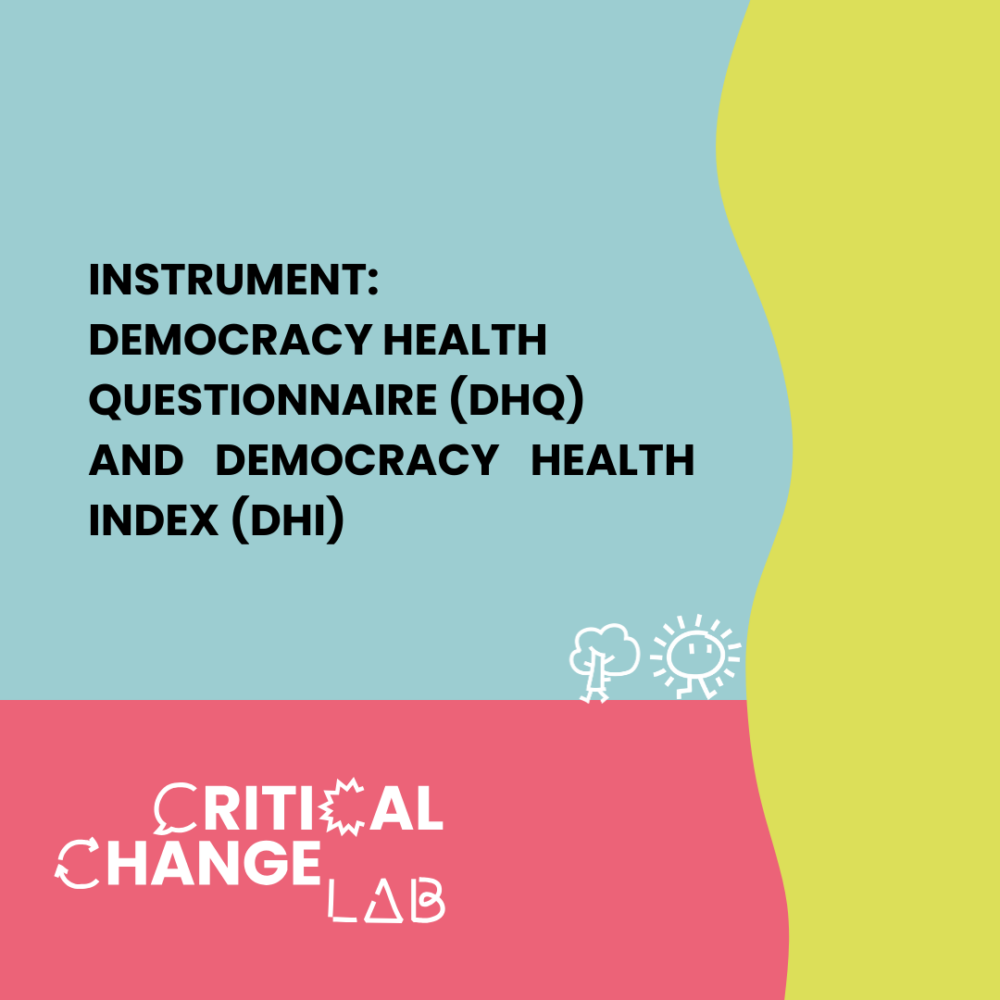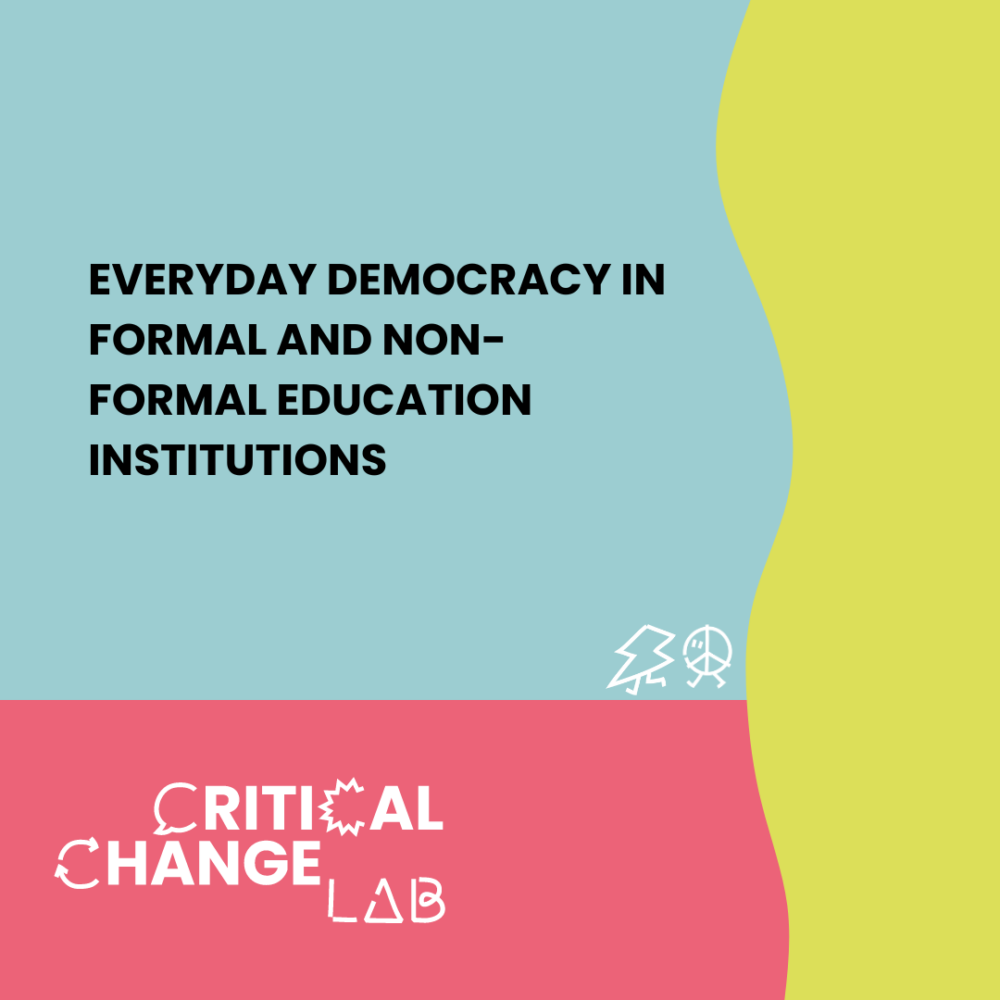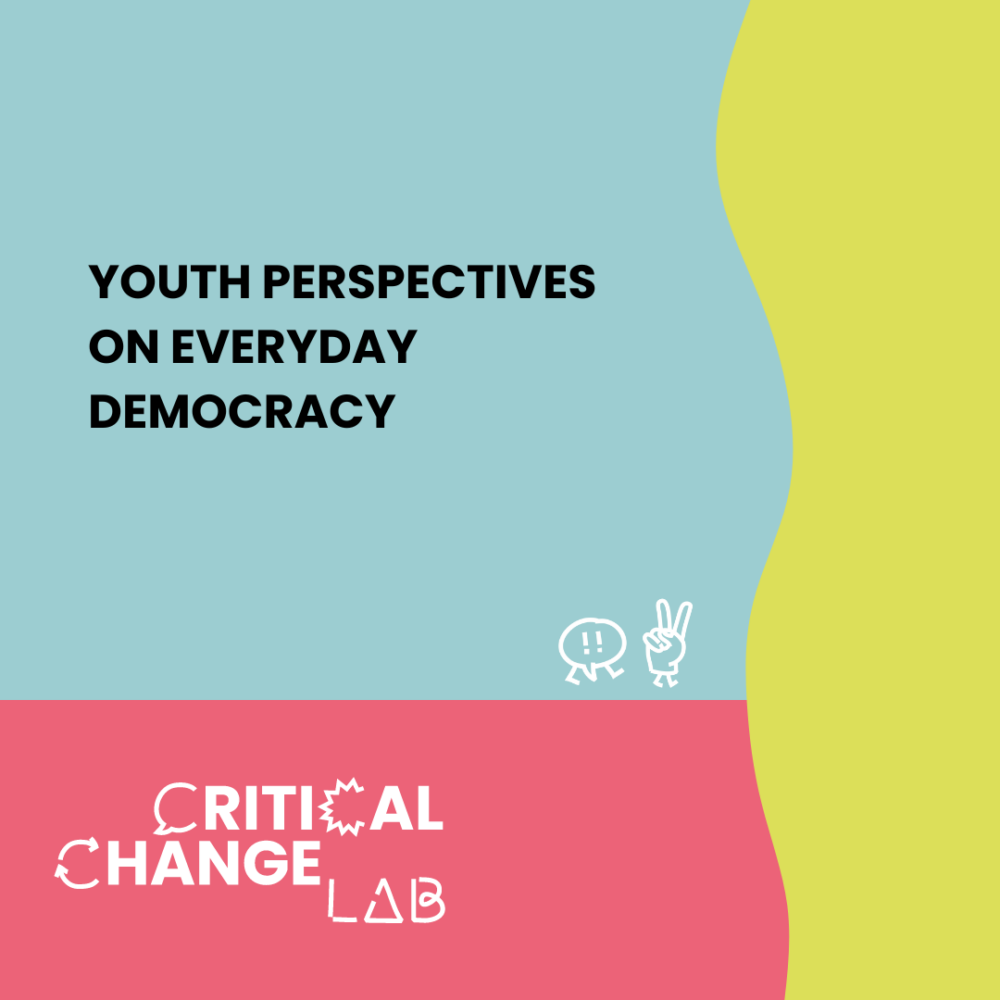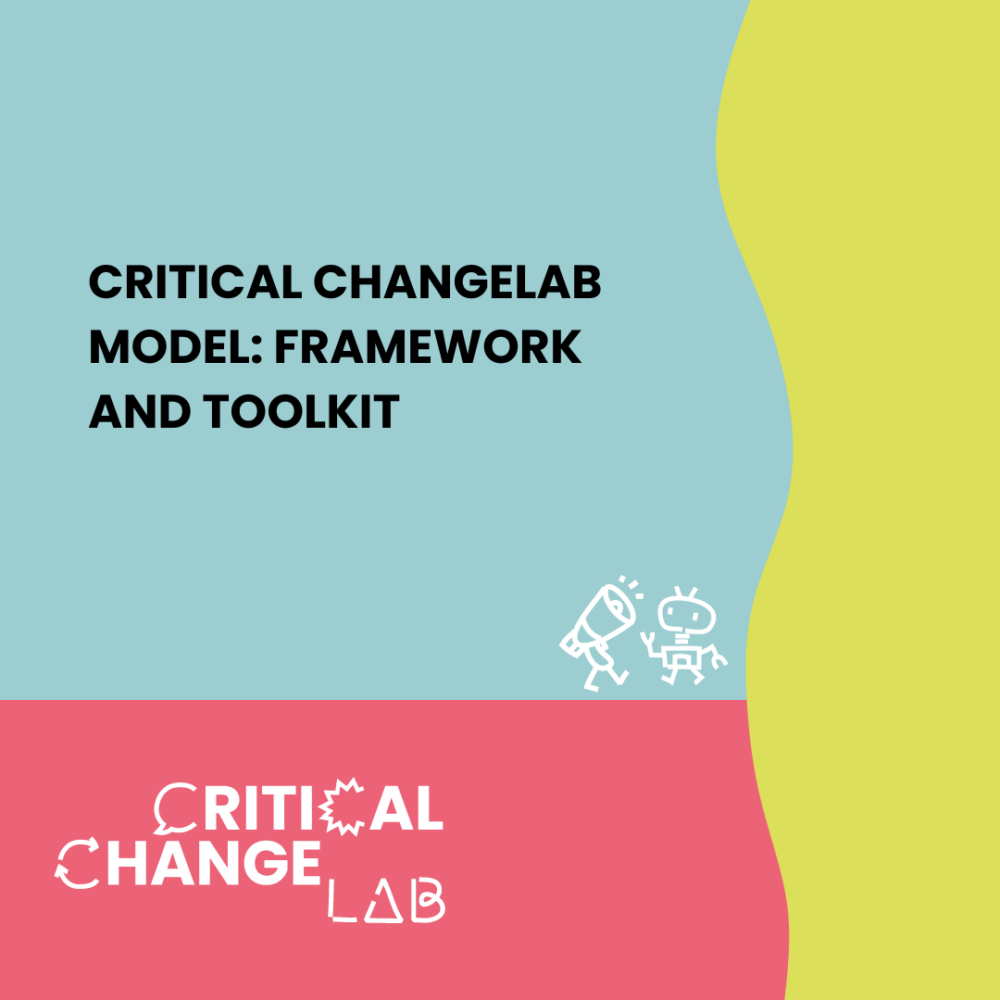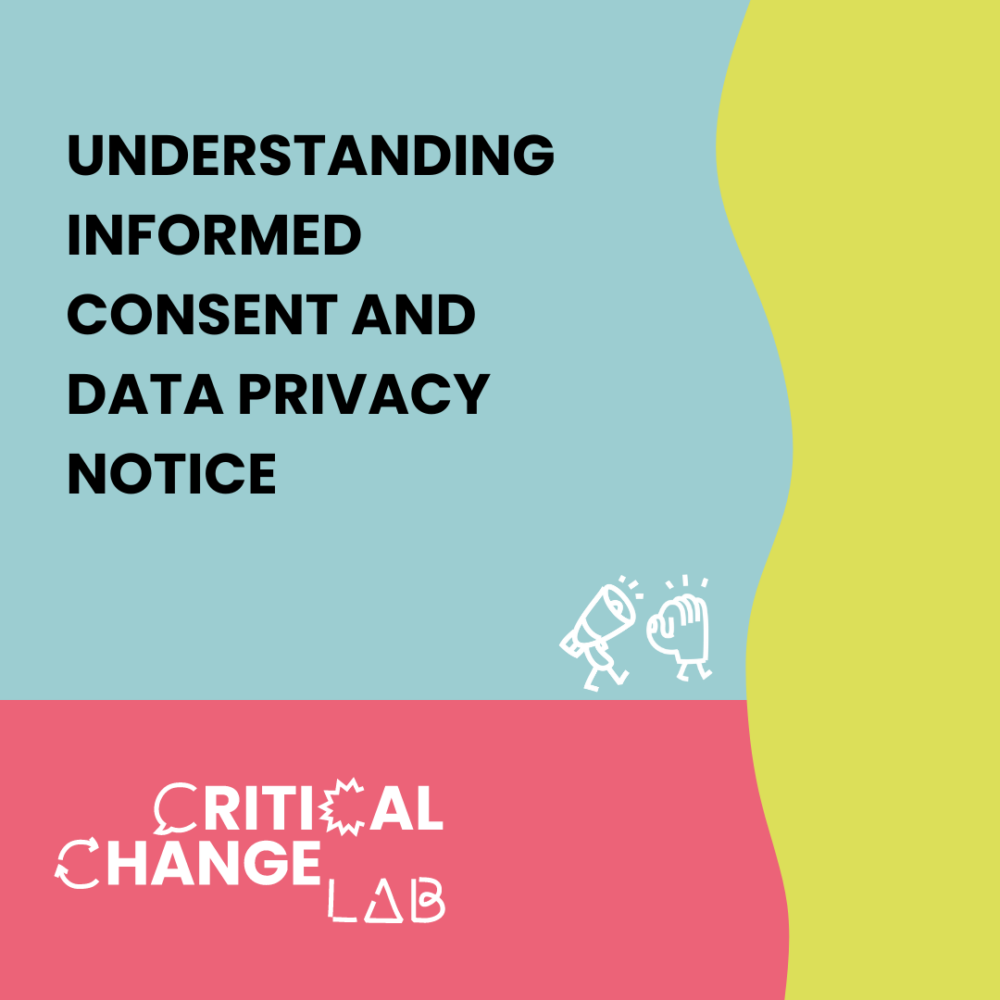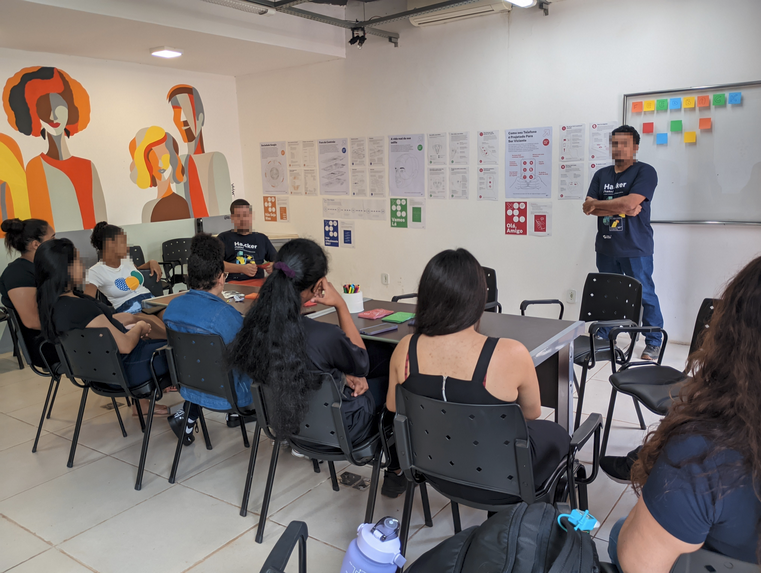
Welcome to the Critical ChangeLab Project’s research and resource library, a resource hub for advancing democratic pedagogy: Explore, engage, and evolve educational practices.
Critical ChangeLab Design Canvas
To enable the implementation of Critical ChangeLab in your own context, design canvases for the whole CCLab process and for the individual sessions have been created and translated into ten European languages (English, Catalan, Croatian, Dutch, Finnish, French, German, Greek, Slovenian, Spanish).
Project Snapshot
Want to know what the Critical ChangeLab project is all about? In our project snapshot you’ll find a brief introduction to the project and our main points of action.
CCLab Introduction Video
Short video produced by our partner Trinity College Dublin to introduce the Critical ChangeLab project and how it relates to democracy and democratic principles, giving the Irish governmental system as an example.
Policy Brief I
This policy brief provides an insight into the research findings on democratic practices in European schools and institutions offering non-formal education programmes, as well as recommendations for improving the practices of the respective institutions.
Instrument: Democracy Health Questionnaire for Non-Formal Educational Institutions and Schools – LANGUAGE VERSIONS
As part of deliverable D1.1 Democracy Health Questionnaire (DHQ) and Democracy Health Index (DHI), the DHQ instrument was developed for the context of non-formal education institutions and schools and translated into ten European languages (English, Catalan, Croatian, Dutch, Finnish, French, German, Greek, Slovenian, Spanish). The final versions of the DHQ were used in assessing democracy health of schools and institutions providing non-formal educational programmes across ten partner countries.
Democracy Health Questionnaire (DHQ) and Democracy Health Index (DHI)
Description of the Democracy Health Questionnaire (DHQ) and Democracy Health Index (DHI) through the stages of conceptualisation, item development and piloting. The final versions of DHQ will be used in assessing democracy health of 2000 schools and institutions providing non-formal educational programmes across ten partner countries.
Everyday democracy in formal and non-formal education institutions
Insights into the implementation of the Democracy Health Questionnaire (DHQ) in 10 countries and initial results from data collection. It includes a report on the initial results from DHQ, elements informing the calculation of the Democracy Health Index (DHI) and future steps regarding the use of DHQ and DHI.
Youth Perspectives on Everyday Democracy
Description of how comparative qualitative research was conceptualised and carried out in 10 countries. More specifically, it describes the planning of comparative case study research with a description of the case study approach, selection of cases, participant structure, protocol development for focus groups and individual interviews and the process of setting up the studies in national contexts. Additionally it reports on the implemenation of the case studies, providing an comparative overview and future steps regarding the use of collected data.
Critical ChangeLab Model: Framework and Toolkit
Presenting the first version of the Critical ChangeLab Model of Democratic Pedagogy, introducing its key elements which include i) the Critical ChangeLab Critical literacies Framework, ii) the Critical ChangeLab process, iii) methods and tools, as well as the iv) facilitation approach. Information about the use of co-design and co-creation approaches for the definition of some elements of the Model, as well as for guiding the design of the Critical ChangeLabs is included. The publication also provides an overview of the Critical ChangeLabs organized during PAR cycle 1 in order to showcase how the Critical ChangeLab Model of Democratic Pedagogy is implemented in real settings.
Understanding informed consent and data privacy notice
Audiovisual material explaining what informed consent is and its relevance in the context of research activities. It also presents information on the content of the data privacy notice, including details on the types of personal data collected in research and the rights of research participants.

